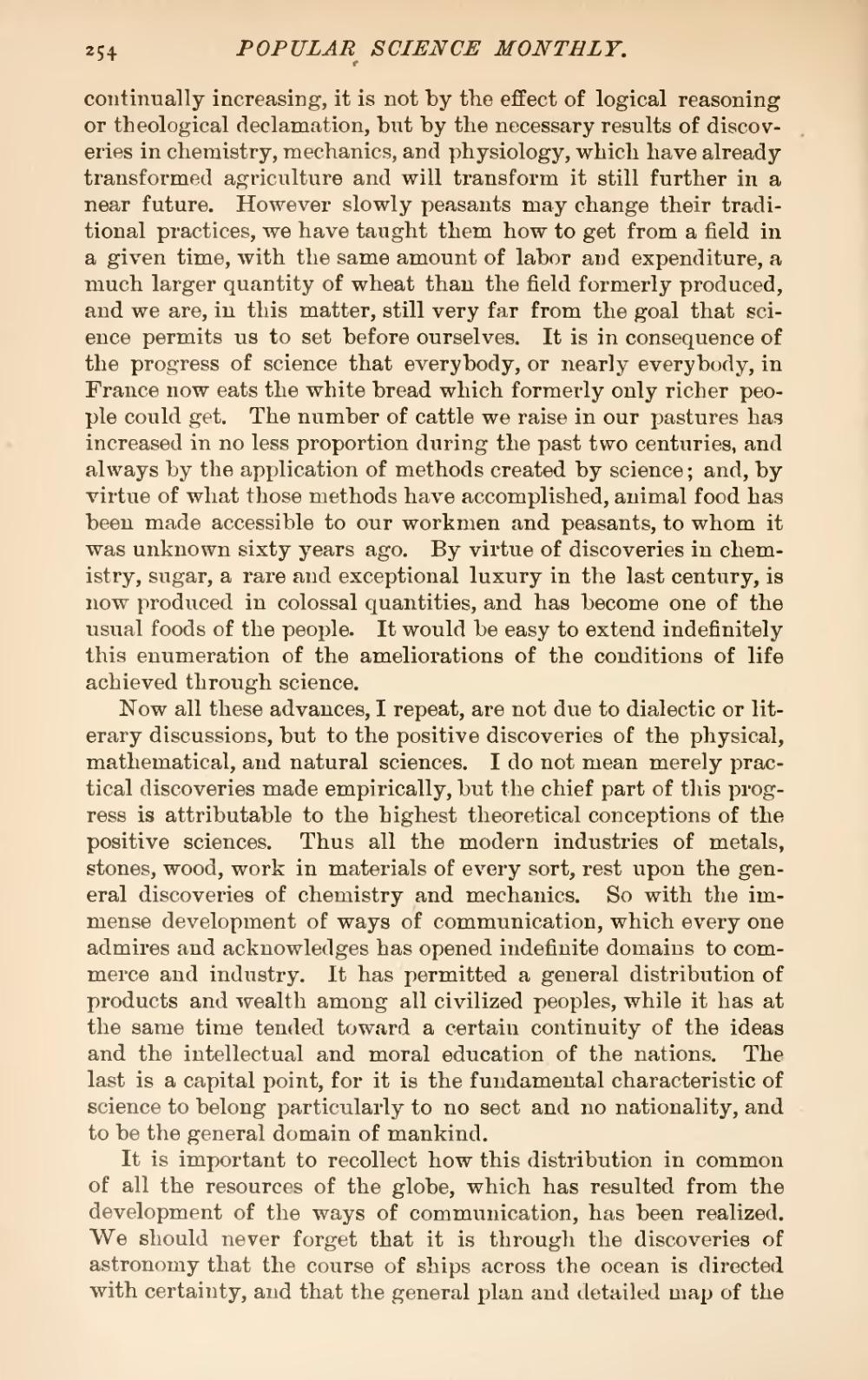continually increasing, it is not by the effect of logical reasoning or theological declamation, but by the necessary results of discoveries in chemistry, mechanics, and physiology, which have already transformed agriculture and will transform it still further in a near future. However slowly peasants may change their traditional practices, we have taught them how to get from a field in a given time, with the same amount of labor and expenditure, a much larger quantity of wheat than the field formerly produced, and we are, in this matter, still very far from the goal that science permits us to set before ourselves. It is in consequence of the progress of science that everybody, or nearly everybody, in France now eats the white bread which formerly only richer people could get. The number of cattle we raise in our pastures has increased in no less proportion during the past two centuries, and always by the application of methods created by science; and, by virtue of what those methods have accomplished, animal food has been made accessible to our workmen and peasants, to whom it was unknown sixty years ago. By virtue of discoveries in chemistry, sugar, a rare and exceptional luxury in the last century, is now produced in colossal quantities, and has become one of the usual foods of the people. It would be easy to extend indefinitely this enumeration of the ameliorations of the conditions of life achieved through science.
Now all these advances, I repeat, are not due to dialectic or literary discussions, but to the positive discoveries of the physical, mathematical, and natural sciences. I do not mean merely practical discoveries made empirically, but the chief part of this progress is attributable to the highest theoretical conceptions of the positive sciences. Thus all the modern industries of metals, stones, wood, work in materials of every sort, rest upon the general discoveries of chemistry and mechanics. So with the immense development of ways of communication, which every one admires and acknowledges has opened indefinite domains to commerce and industry. It has permitted a general distribution of products and wealth among all civilized peoples, while it has at the same time tended toward a certain continuity of the ideas and the intellectual and moral education of the nations. The last is a capital point, for it is the fundamental characteristic of science to belong particularly to no sect and no nationality, and to be the general domain of mankind.
It is important to recollect how this distribution in common of all the resources of the globe, which has resulted from the development of the ways of communication, has been realized. We should never forget that it is through the discoveries of astronomy that the course of ships across the ocean is directed with certainty, and that the general plan and detailed map of the
